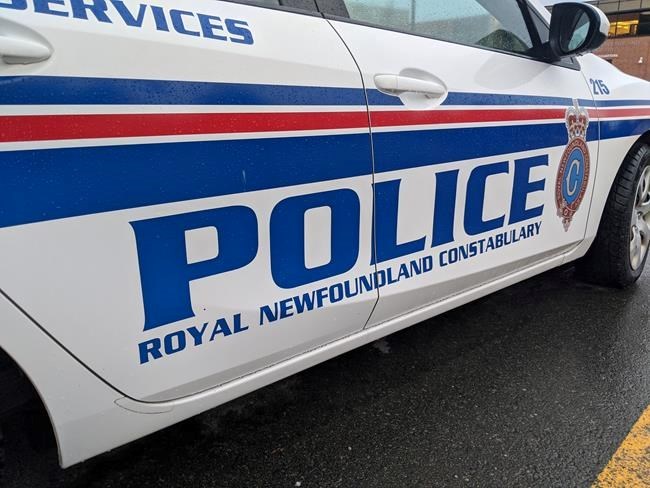ST. JOHN'S, N.L. — Newfoundland and Labrador's provincial police force has acknowledged systemic racism within its ranks, as well as the contribution of police to the injustices faced by Indigenous and other racialized people.
The force said Wednesday it is prepared to work with St. John's-based Indigenous collective First Voice to implement the calls for justice laid out by the National Inquiry into Missing and Murdered Indigenous Women and Girls.
"The (Royal Newfoundland Constabulary) has made commitments to review current training to ensure ... officers and civilians are equipped with appropriate anti-racism training, to undertake a review of policies and procedures, and to work to repair our relationship with the urban Indigenous community with counsel from First Voice," the force said in a statement.
First Voice called the police force's acknowledgment a "significant step" and renewed its calls for police reform.
"Welcome as they are, these commitments do not alter the urgent need for systemic change in the way that policing is carried out in Newfoundland and Labrador," the group said in a news release.
The constabulary's statement marked a change of heart for the force. Police Chief Pat Roche told CСŔ¶ĘÓƵ News in June that he did not believe systemic racism existed within the force, prompting repeated calls from First Voice for him to reconsider.
The force said it met Tuesday with First Voice representatives, which left Roche "committed to a pathway of change and growth."
"Reconciliation requires action," the news release said, adding: "The RNC understands that action to advance truth and reconciliation depends on building long-term relationships that are grounded in mutual respect and understanding, and that action must be led by and in partnership with Indigenous Peoples."
On Oct. 4, First Voice released a sweeping report on policing in Newfoundland and Labrador, and in Canada. It makes 26 recommendations for policing reform in the province, including the group's long-standing call for the establishment of a civilian-led police oversight board. Such a board would have the power to review and recommend policies dealing with matters including use of force and the investigation of police misconduct.
Justin Campbell, a member of the group, noted that the responsibility to set up such a board lies with the provincial Justice Department.
"We have a commitment here from the chief of police to work within the powers that he has within the (Royal Newfoundland Constabulary). But what we really need is a broader commitment from the Department of Justice ... to say, 'OK, we're going to take these recommendations, and we're going to take them seriously. They're going to be implemented,'" Campbell said in an interview, referring to the contents of First Voice's report.
Roche's commitment to work with First Voice toward implementing the national inquiry's call for justice is "very significant," and the group is taking it "very seriously," Campbell said.
"We also intend to ensure that there's accountability for following through on that commitment, he added.
This report by The Canadian Press was first published Oct. 19, 2022.
Sarah Smellie, The Canadian Press




